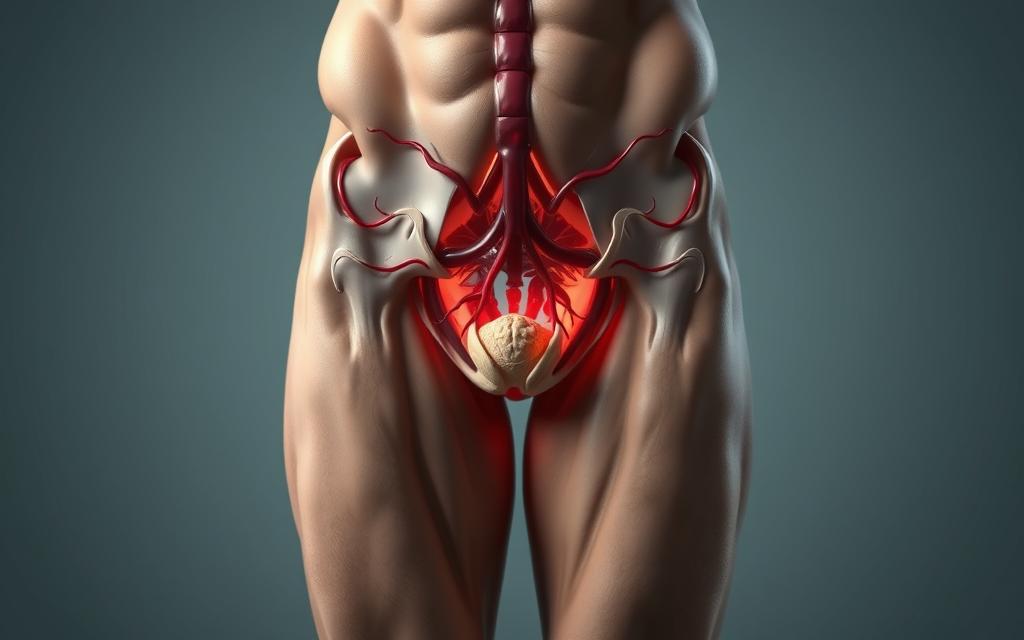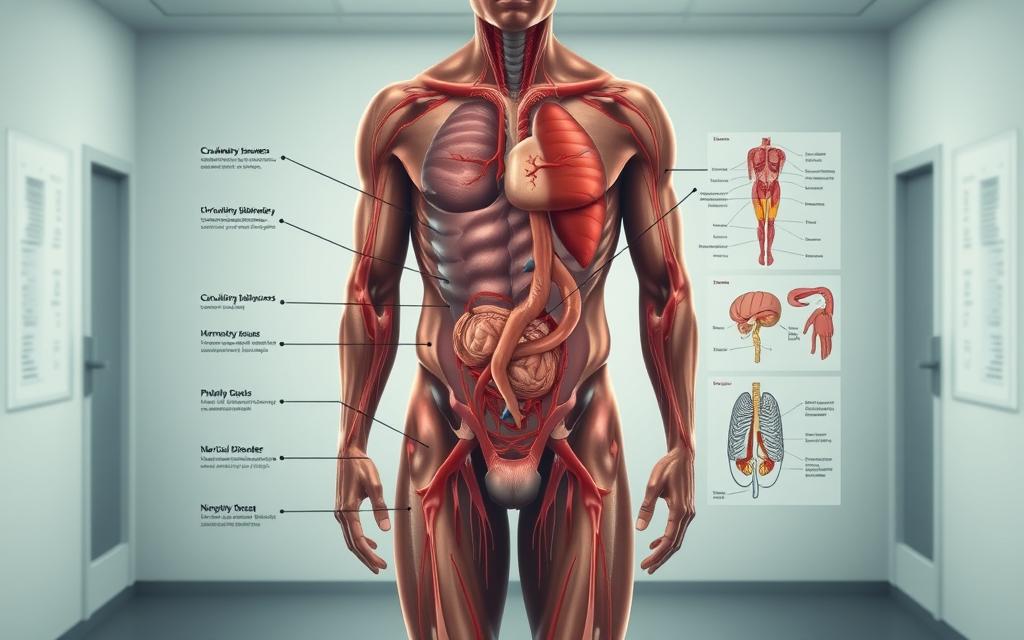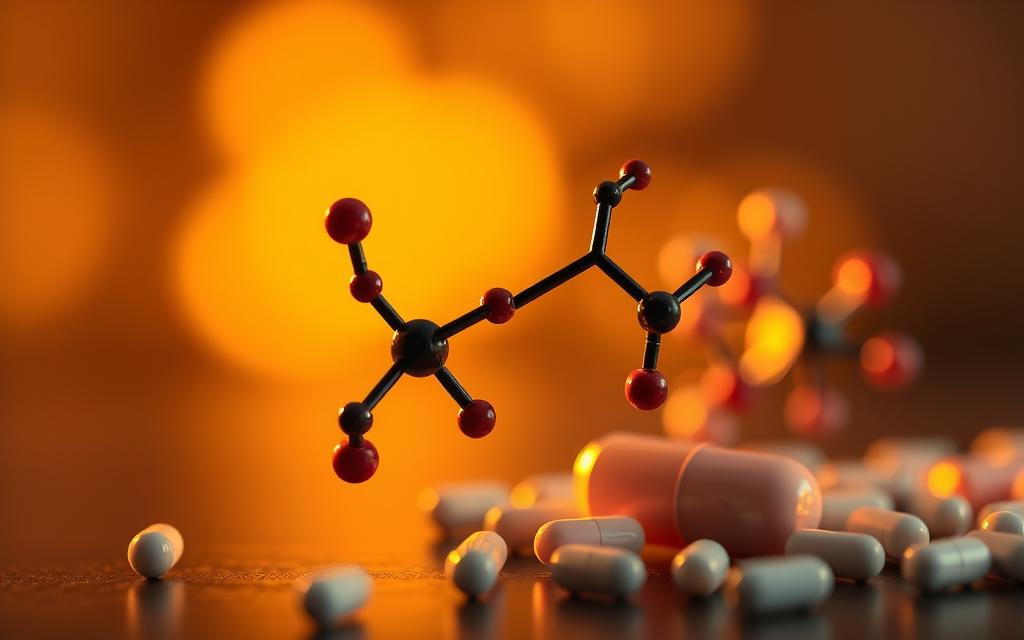Does Atorvastatin Cause Erectile Dysfunction? | Side Effects Explained
Atorvastatin, a commonly prescribed cholesterol medication, has been a subject of concern for many due to its potential side effects. One of the worrying side effects is its possible link to erectile dysfunction. Many individuals taking atorvastatin have reported experiencing sexual health issues.
According to a meta-analysis published in the Journal of Clinical Hypertension, statins were associated with a slight increase in the risk of ED. For more detailed information, you can visit Colorado Urologists, which provides insights into the relationship between atorvastatin and erectile dysfunction.
This article aims to explore the connection between atorvastatin and sexual health, helping you understand the potential risks and benefits associated with this medication.
Understanding Atorvastatin: Purpose and Benefits
Atorvastatin, known for its effectiveness in lowering cholesterol, has become a staple in cardiovascular care. It is a medication that belongs to a group of drugs known as statins, which are widely prescribed to manage high cholesterol levels and prevent cardiovascular disease.
What is Atorvastatin and How is it Used?
Atorvastatin is used to lower low-density lipoprotein (LDL) cholesterol and triglycerides in the blood while increasing high-density lipoprotein (HDL) cholesterol. It is typically prescribed to individuals at risk of cardiovascular events, such as heart attacks and strokes, and is often used alongside diet and exercise.
How Atorvastatin Works to Lower Cholesterol
Atorvastatin works by inhibiting an enzyme in the liver (HMG-CoA reductase) necessary for the production of cholesterol. By reducing the liver’s production of cholesterol, atorvastatin helps decrease the amount of LDL cholesterol in the blood, thereby reducing the risk of cardiovascular disease. This mechanism not only lowers cholesterol but also stabilizes plaques in arteries, making them less likely to rupture. Regular use of atorvastatin can lead to significant improvements in lipid profiles, contributing to overall heart health.
Common Side Effects of Atorvastatin
While atorvastatin is generally well-tolerated, it’s crucial to understand the common side effects that some patients may experience. Atorvastatin, like other statins, can cause a variety of side effects ranging from mild to severe.
Frequently Reported Physical Side Effects
Some of the most frequently reported physical side effects of atorvastatin include muscle pain, digestive issues, and fatigue. Muscle pain, or myalgia, is one of the most common complaints, although it can vary in intensity. It’s essential for patients to report any persistent or severe muscle pain to their healthcare provider.
| Side Effect | Frequency | Action |
|---|---|---|
| Muscle Pain | Common | Report to healthcare provider if severe or persistent |
| Digestive Issues | Common | Monitor and discuss with healthcare provider if bothersome |
| Fatigue | Less Common | Evaluate overall health and discuss with healthcare provider |
Less Common but Serious Side Effects
Though less common, atorvastatin can cause serious side effects, including liver damage and increased blood sugar levels. Patients with a history of diabetes should be closely monitored. It’s crucial to be aware of these potential risks and to seek medical attention if symptoms persist or worsen.
The Relationship Between Atorvastatin and Sexual Function
The relationship between atorvastatin and sexual health is complex, involving potential effects on hormones and blood flow. Atorvastatin, like other statins, is prescribed to lower cholesterol levels and prevent cardiovascular disease. However, its impact on sexual function has raised concerns among patients and healthcare providers.
How Statins May Affect Hormones and Blood Flow
Statins, including atorvastatin, may influence sexual function through their effects on hormone production and blood flow. Cholesterol is a precursor to sex hormones, such as testosterone and estrogen. Lowering cholesterol levels could theoretically affect the production of these hormones, potentially impacting libido and sexual function. Additionally, statins can improve blood flow by enhancing endothelial function, which is crucial for erectile function. However, the overall effect of atorvastatin on sexual health can vary depending on individual factors, including the presence of underlying health conditions.
The impact of statins on hormone levels is a subject of ongoing research. Some studies suggest that while statins lower cholesterol, they may also reduce the levels of certain hormones. However, the clinical significance of this effect is still being debated.
Reported Cases of Sexual Dysfunction with Atorvastatin
There have been reported cases of sexual dysfunction associated with atorvastatin, including erectile dysfunction (ED) and decreased libido. Clinical trials and post-marketing surveillance have identified these side effects, although their frequency and causality vary. It’s essential for patients experiencing sexual dysfunction while taking atorvastatin to discuss their symptoms with their healthcare provider to determine the best course of action.
Patients should be aware that sexual dysfunction can be multifactorial, involving psychological, neurological, and vascular components. Therefore, attributing sexual dysfunction solely to atorvastatin requires careful consideration of other potential causes.
Scientific Evidence: What Research Shows
To understand the impact of atorvastatin on erectile function, it’s essential to examine the existing scientific evidence. Atorvastatin, a widely prescribed statin, has been the subject of numerous studies investigating its potential effects on erectile dysfunction.
Clinical Studies on Atorvastatin and Erectile Function
Several clinical studies have explored the relationship between atorvastatin and erectile function. A study published in the Journal of Clinical Hypertension found that atorvastatin therapy was associated with improved erectile function in patients with hypertension. Conversely, another study in the Journal of Sexual Medicine reported cases of erectile dysfunction in patients taking atorvastatin.
| Study | Participants | Outcome |
|---|---|---|
| Journal of Clinical Hypertension | 100 patients with hypertension | Improved erectile function |
| Journal of Sexual Medicine | 50 patients on atorvastatin | Reported cases of erectile dysfunction |
Conflicting Evidence and Research Limitations
The evidence regarding atorvastatin’s impact on erectile function is not conclusive, with some studies suggesting a positive effect and others indicating potential negative effects. Limitations in study design, sample size, and population demographics contribute to the conflicting findings.

Further research is needed to fully understand the relationship between atorvastatin and erectile dysfunction. Healthcare providers should consider individual patient factors when prescribing atorvastatin, weighing the benefits of cholesterol reduction against potential risks to sexual health.
Can Stress Cause Erectile Dysfunction?
Stress is a common experience that can affect various aspects of health, including sexual function. The body’s response to stress involves the release of hormones like cortisol and adrenaline, which prepare the body for ‘fight or flight.’ While this response is helpful in the short term, chronic stress can disrupt normal bodily functions, including those related to sexual health.
The Mind-Body Connection in Sexual Health
The mind-body connection plays a significant role in sexual health. Stress can interfere with the normal functioning of the nervous system, which is crucial for achieving and maintaining an erection. High levels of stress can also lead to fatigue, decreased libido, and anxiety, all of which can contribute to erectile dysfunction (ED).
Moreover, the psychological impact of stress should not be underestimated. Stress can lead to feelings of inadequacy, performance anxiety, and depression, further complicating the issue of ED.
How to Determine if Your ED is Stress-Related or Medication-Related
Distinguishing between stress-related ED and medication-related ED can be challenging. However, understanding the timeline and triggers of your ED symptoms can provide clues. If your ED symptoms coincide with periods of high stress or began shortly after starting a new medication like Atorvastatin, it may indicate a correlation.
| Characteristics | Stress-Related ED | Medication-Related ED |
|---|---|---|
| Onset | Typically coincides with periods of high stress | Often begins shortly after starting the medication |
| Triggers | Stress, anxiety, and psychological factors | Physiological changes due to medication |
| Treatment Approach | Stress management techniques, counseling | Consulting a doctor about adjusting medication |
Consulting a healthcare professional is essential for determining the cause of ED and developing an effective treatment plan. By understanding whether your ED is stress-related or medication-related, you can take the first step towards addressing the issue and improving your sexual health.
Other Potential Causes of Erectile Dysfunction
Erectile dysfunction can result from a combination of medical conditions, lifestyle factors, and other health-related issues. While medication side effects, such as those potentially associated with Atorvastatin, are a consideration, they are not the only factors that can contribute to ED.
Medical Conditions That May Contribute to ED
Various medical conditions can play a significant role in the development of erectile dysfunction. These include diabetes, which can damage blood vessels and nerves, hypertension, which can affect blood flow, and heart disease, which can impact the body’s ability to pump blood effectively. Other conditions like hypogonadism, where the testes do not produce enough testosterone, can also contribute to ED.

Lifestyle Factors and Habits That Impact Sexual Function
Lifestyle factors and habits can significantly impact sexual function and contribute to erectile dysfunction. Smoking and excessive alcohol consumption can damage blood vessels and reduce blood flow to the penis. Being overweight or obese can also increase the risk of ED, as it is associated with other health conditions that can contribute to erectile dysfunction. Additionally, a sedentary lifestyle and high levels of stress can further exacerbate the condition.
When to Talk to Your Doctor About Atorvastatin Side Effects
If you’re taking atorvastatin and experiencing side effects, it’s crucial to know when to seek medical advice. Atorvastatin is generally well-tolerated, but like all medications, it can cause side effects in some individuals.
Warning Signs That Require Medical Attention
Certain side effects of atorvastatin require immediate medical attention. These include severe muscle pain or weakness, liver problems indicated by yellowing of the skin or eyes, and allergic reactions such as difficulty breathing or swelling of the face, lips, tongue, or throat.
If you experience any of these symptoms, it’s essential to contact your healthcare provider right away.
Questions to Ask Your Healthcare Provider
When discussing atorvastatin side effects with your doctor, consider asking the following questions:
- What are the potential long-term effects of taking atorvastatin?
- How can I manage common side effects?
- Are there alternative treatments or adjustments that can be made to my current regimen?
By being proactive and informed, you can work with your healthcare provider to minimize the risks associated with atorvastatin and maximize its benefits.
Managing Erectile Dysfunction While Taking Atorvastatin
Understanding the relationship between atorvastatin and erectile dysfunction is crucial for effective management. As discussed, atorvastatin can potentially impact sexual function, but the extent of this effect varies among individuals.
Managing ED while on atorvastatin requires a comprehensive approach. This includes monitoring cholesterol levels, maintaining a healthy lifestyle, and discussing any concerns with a healthcare provider. They can help determine if atorvastatin is contributing to ED or if other factors are at play.
By working closely with a healthcare provider and being aware of the potential side effects of atorvastatin, individuals can better manage their condition and minimize the risk of erectile dysfunction. Open communication and a well-informed treatment plan are key to maintaining overall health and well-being.
